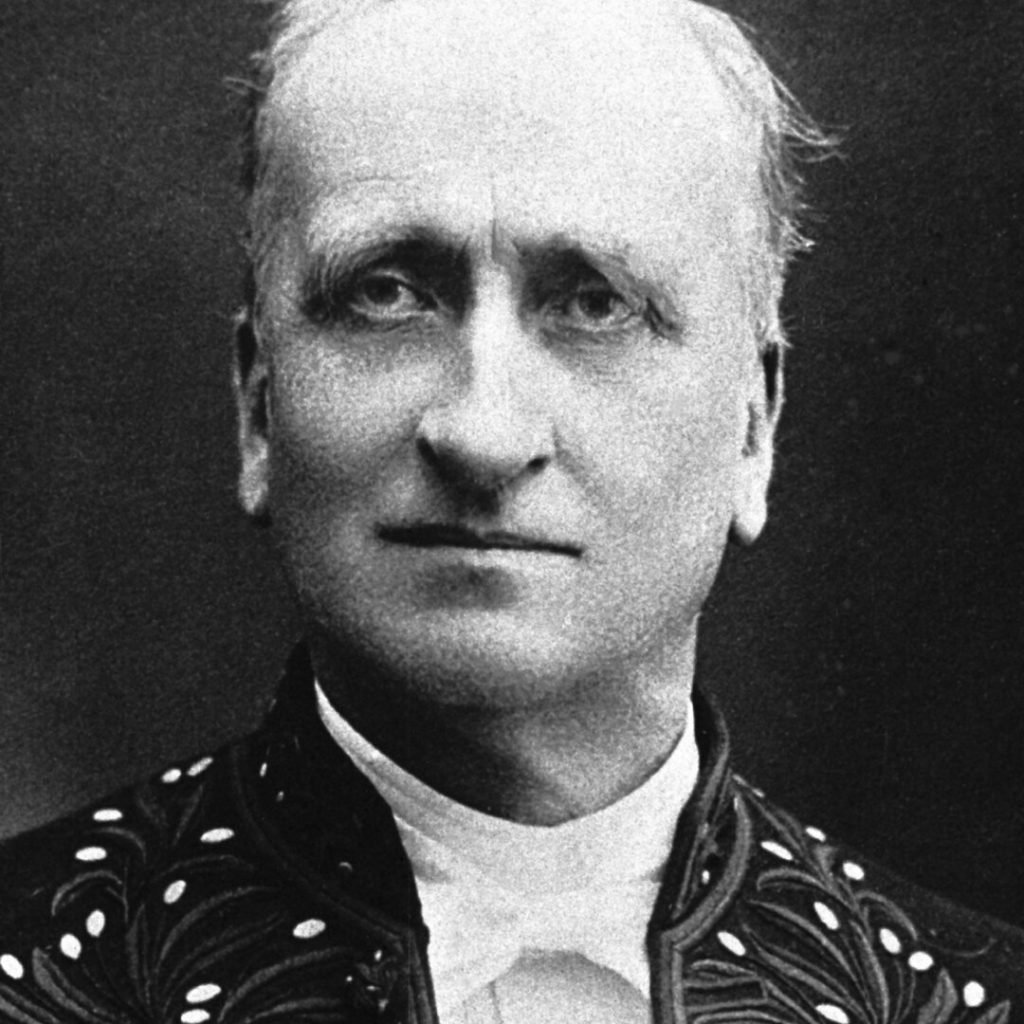Louis Renault
Speed read
Louis Renault was awarded the Nobel Peace Prize for his decisive influence upon the conduct and outcome of both the Hague and the Geneva Conferences. He shared the prize with Ernesto Moneta.

Full name: Louis Renault
Born: 221 May 1843, Autun, France
Died: 8 February 1918, Barbizon, France
Date awarded: 10 December 1907
Peace through international law
Legal expert Louis Renault believed that peace could be promoted by strengthening international law, and he worked tirelessly his whole life for this cause. He taught at the universities in Dijon and Paris, holding his last lecture at the age of 75, just two days before he died. The professor also served as an adviser to the French government on foreign policy and international law. During the Hague Peace Conferences in 1899 and 1907, he became recognised as a proficient and pragmatic jurist. Renault was particularly interested in expanding the Geneva Convention to include naval war, and he sought to clarify the rights and obligations of neutral states in times of war.
"… he may be said to have been the guiding genius in the teaching of international law in France …"
Jørgen Løvland, Chairman of the Nobel Committee, Presentation speech, 10 December 1907.
Norwegian friends in The Hague
“I owe the peace prize to my Norwegian colleagues from The Hague,” wrote Louis Renault to the Norwegian Nobel Institute. It certainly did not hurt his candidature that Norwegian politicians and lawyers had seen Renault in action at the peace conferences of 1899 and 1907. Moreover, the union between Sweden and Norway was newly dissolved, and it is not unlikely that the Nobel Committee hoped to promote good relations between Norway and France. One of the committee members thanked Renault as follows, “The Norwegian Constitution is based on the basic tenets of the French Revolution, which is why Norwegians view France with great amicability and gratitude.”
| The Hague Peace Conferences Conferences held in 1899 and 1907 with the aim of achieving peaceful solutions to international disputes, primarily by arbitration and the establishment of an international court of justice. |
Renault and the celebration of May 17th
As did several other pre-WWI Nobel Peace Prize laureates, Louis Renault chose to hold his Nobel Lecture in May. Thus he experienced Norway’s national day celebrations on 17 May. He told the Norwegian press that he admired what he had experienced in the lovely sunshine of Kristiania. The children’s parade in front of the castle in the capital city made a particularly strong impression. “There was an almost religious solemnity to it all,” reported Ørebladet in an interview with the peace prize laureate.
"The important thing is that arbitration be used to avoid conflict; whether it is used here or there, whether through this or that procedure is of little consequence."
Louis Renault, Nobel Prize lecture, 18 May 1908.
Learn more
Although his active participation in efforts to solve the problems of international law brought him honor and respect from around the world, Louis Renault was, in his own words, "a professor at heart" ...
Disclaimer: Every effort has been made by the publisher to credit organisations and individuals with regard to the supply of photographs. Please notify the publishers regarding corrections.
Nobel Prizes and laureates
Six prizes were awarded for achievements that have conferred the greatest benefit to humankind. The 14 laureates' work and discoveries range from quantum tunnelling to promoting democratic rights.
See them all presented here.
